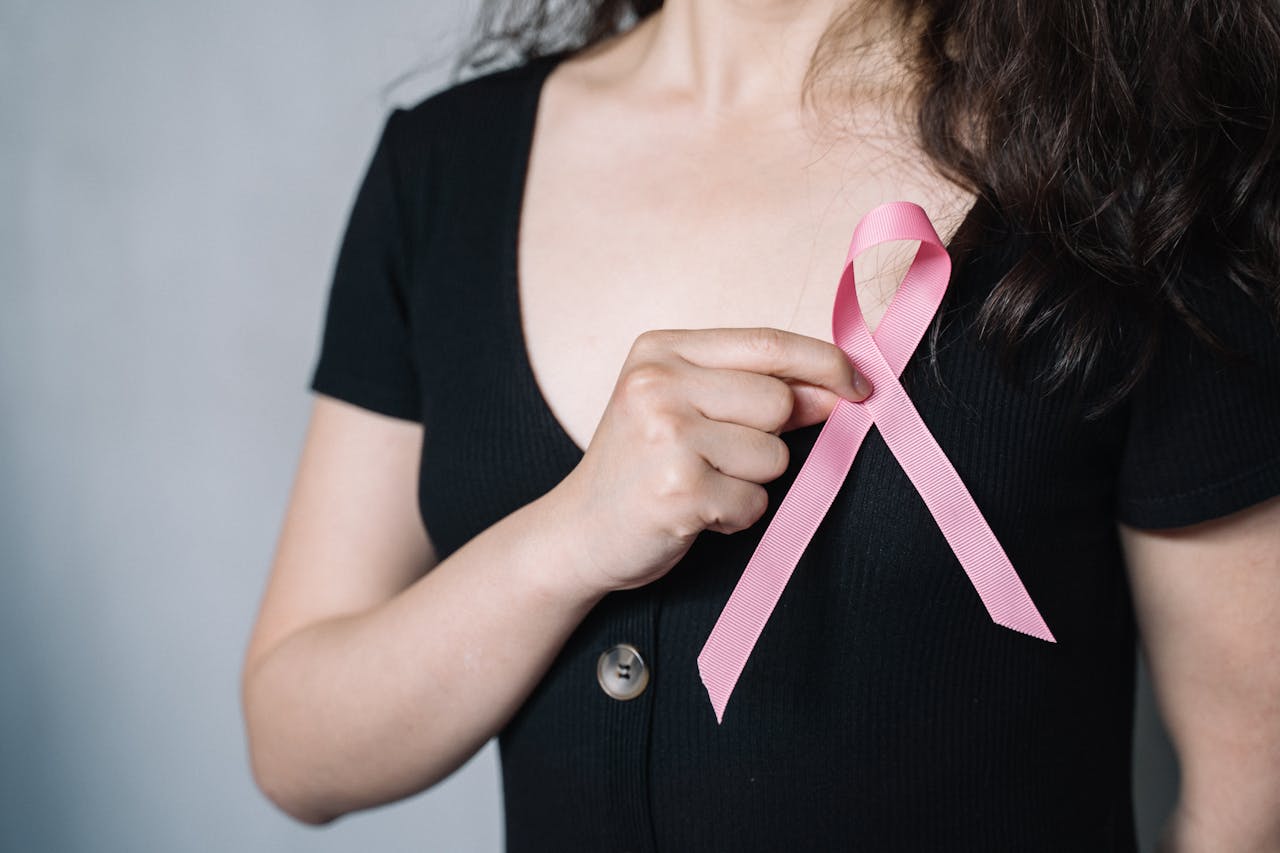Breast cancer prevention starts with adopting healthy habits, such as limiting alcohol intake and staying physically active. Learn how to lower your risk of breast cancer.
If you’re concerned about breast cancer, you may be wondering how you can prevent it. While you can’t change some risk factors, like family history, you can take steps to reduce your risk through lifestyle changes.
How Can I Lower My Risk of Breast Cancer?
Research indicates that lifestyle changes can reduce the risk of breast cancer, even in those at high risk. Here are some steps you can take:
1. Limit Alcohol or Quit Drinking
The safest approach is to avoid alcohol altogether. However, if you choose to drink, do so in moderation. The more alcohol you consume, the greater your risk of breast cancer. Women should limit their intake to no more than one drink per day. Even small amounts of alcohol can increase your risk. One drink equals 12 ounces of beer, 5 ounces of wine, or 1.5 ounces of distilled spirits.
2. Maintain a Healthy Weight
Consult with your healthcare team to determine if your weight is within a healthy range. If it is, strive to maintain it. If you need to lose weight, seek advice from healthcare professionals on the best strategies. Simple steps like portion control, reducing calorie intake, and gradually increasing physical activity can help.
3. Stay Physically Active
Physical activity can help you maintain a healthy weight, which in turn helps prevent breast cancer. Aim to move more and sit less. Most healthy adults should target at least 150 minutes of moderate aerobic activity or 75 minutes of vigorous aerobic activity each week. Aerobic exercises like walking, cycling, running, and swimming are beneficial. Additionally, try to include strength training exercises at least twice a week.
4. Breastfeed if Possible
If you’ve recently had a baby, breastfeeding may help reduce your breast cancer risk. The longer you breastfeed, the greater the protective effect.
5. Limit Postmenopausal Hormone Therapy
Combined hormone therapy, which uses both estrogen and progestin, can increase the risk of breast cancer. Discuss the risks and benefits of hormone therapy with your healthcare provider. You may be able to manage symptoms with non-hormonal treatments and medications. If short-term hormone therapy is necessary, use the lowest effective dose and have your healthcare team monitor the duration of your treatment.
Research shows that people who have had a hysterectomy and use estrogen alone do not have an increased risk of breast cancer. However, estrogen use is associated with a slight increase in the risk of blood clots and stroke.
6. Quit Smoking
Some studies suggest that smoking may increase the risk of breast cancer. Exposure to secondhand smoke might also raise your risk. If you or your loved ones need help quitting smoking, seek assistance from your healthcare team.
Can a Healthy Diet Help Prevent Breast Cancer?
Maintaining a healthy diet may reduce the risk of certain cancers. It also lowers the chances of developing diabetes, heart disease, or stroke.
Some research suggests that those who follow a Mediterranean diet may have a lower risk of breast cancer, particularly after menopause. The Mediterranean diet is primarily plant-based, featuring fruits, vegetables, whole grains, legumes, and nuts. People following this diet choose healthy fats, such as extra-virgin olive oil, instead of butter and prefer fish over red meat.
A balanced diet also helps you maintain a healthy weight, which is a key factor in preventing breast cancer.
Is There a Link Between Birth Control and Breast Cancer?
There is some evidence that hormonal contraceptives may slightly increase the risk of breast cancer. These contraceptives include birth control pills and hormone-releasing intrauterine devices (IUDs). However, the risk is small and decreases after you stop using hormonal contraception.
Discuss your birth control options with your healthcare team. They can help you weigh the benefits and risks. Benefits of birth control pills include:
- Regulating menstrual bleeding
- Preventing unintended pregnancy
- Reducing the risk of other cancers, such as endometrial and ovarian cancer
What Else Can I Do?
If you notice any changes in the appearance or feel of your breasts, inform your healthcare team immediately. For instance, if you find a new lump or notice changes in the skin, seek medical advice. Consult with healthcare professionals to determine when you should start mammograms and other screening tests based on your medical history.
Some people have a higher risk of breast cancer due to family history or specific genetic mutations. If your healthcare provider informs you that you are at higher risk, consider the following actions:
- Genetic counseling and testing
- Increased frequency of breast exams
- Earlier screening for breast cancer
- Preventive medications or surgery to reduce breast cancer risk
For more information, visit TJ Beishute.



